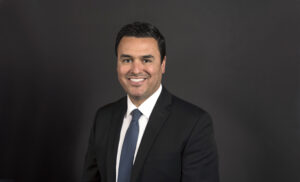
By Eric Michael, Staff Attorney, Economic Maintenance Unit
Among the various reasons clients seek help from the CLA SoCal Economic Maintenance Unit is for assistance obtaining Social Security disability benefits (SSI).
The Social Security Administration (SSA) places the burden on claimants to identify and provide medical and treatment records crucial to obtaining a favorable disability decision. The reality is that most people don’t keep good track of their medical records. This is particularly common among our clients, who may be unhoused or on the verge of becoming unhoused, without a readily available computer or smart phone, or simply not tech savvy.
Onus on the vulnerable
Because the onus is on these individuals to secure and maintain records vital to their disability case, the result is claimants often being cut off from or denied benefits. My client, Ronald (fictitious name), is one such person—he came to us when he needed assistance with appealing termination of his SSI.
Ronald is 34 years old and suffers from type two diabetes, neuropathy in his feet, legs, and hands, diabetic retinopathy in both eyes, and chronic back pain. He has not worked his entire adult life due to these impairments and has received SSI since February 2011.
Despite his conditions and the fact he was seeing seven medical specialists, SSA determined Ronald was no longer disabled in June 2019. Their rationale was a lack of medical evidence to substantiate an ongoing disability. Since Ronald continued to receive payments of about $1,000 a month pending the outcome of his hearing, an adverse decision would mean being cut off from these payments and having to pay back nearly three years of benefits.
Taking the case
When I took over the case, I quickly learned Ronald was missing roughly 20 medical exhibits documenting his conditions and ongoing treatment. I requested the October 2021 hearing be continued to a later date, but the Administrative Law Judge (ALJ) determined the matter had already been delayed long enough due to the pandemic.
Both the medical and vocational experts provided testimony unfavorable to Ronald’s position and, as expected, the medical expert testified there was insufficient medical evidence to substantiate his alleged impairments. Fortunately, the vocational expert made a number of errors in his testimony. For example, identifying jobs he believed Ronald could perform despite his impairments, but that no longer existed in today’s economy.
At close of hearing, I lobbied the ALJ to keep Ronald’s case open to allow for more time to obtain the missing medical records. The ALJ granted this request, and in that time I submitted several objections to the vocational expert’s testimony, along with a demand it be completely thrown out.
The ALJ honored my objections and set the matter for a new hearing in April 2022. This was a short-term victory as it guaranteed Ronald would continue receiving his monthly benefits through the holidays, no matter the ultimate outcome.
Meeting the definition of disability
Prior to the second hearing in April I located a dozen medical records critical to Ronald’s case. Backed by these records, the new medical expert agreed that Ronald’s impairments met SSA’s definition of disability, and the ALJ issued a favorable decision within a week.
Ronald was relieved and happy with the outcome. His impairments were validated, he avoided owing $34,000 in back payments, and he will continue receiving the only meager income he has had for 10 years.


